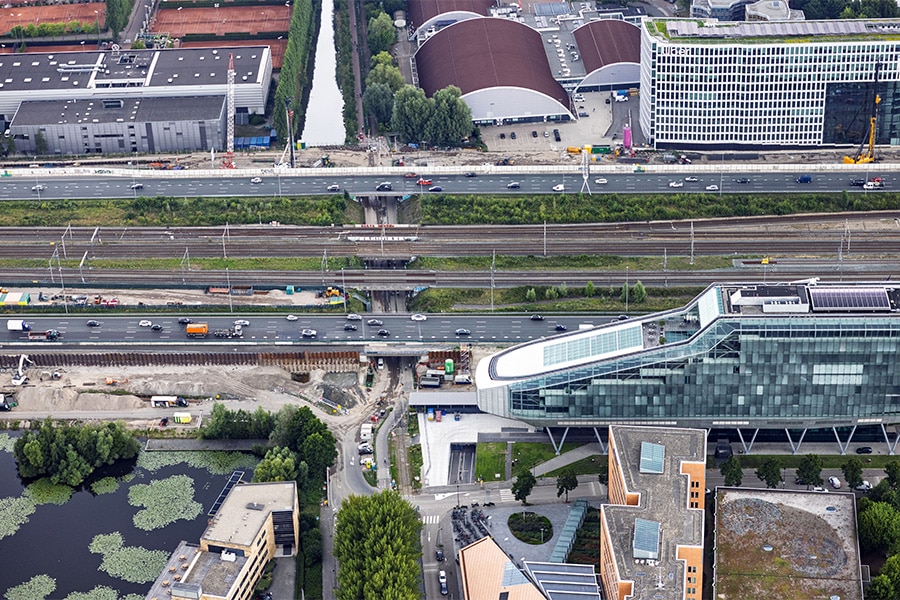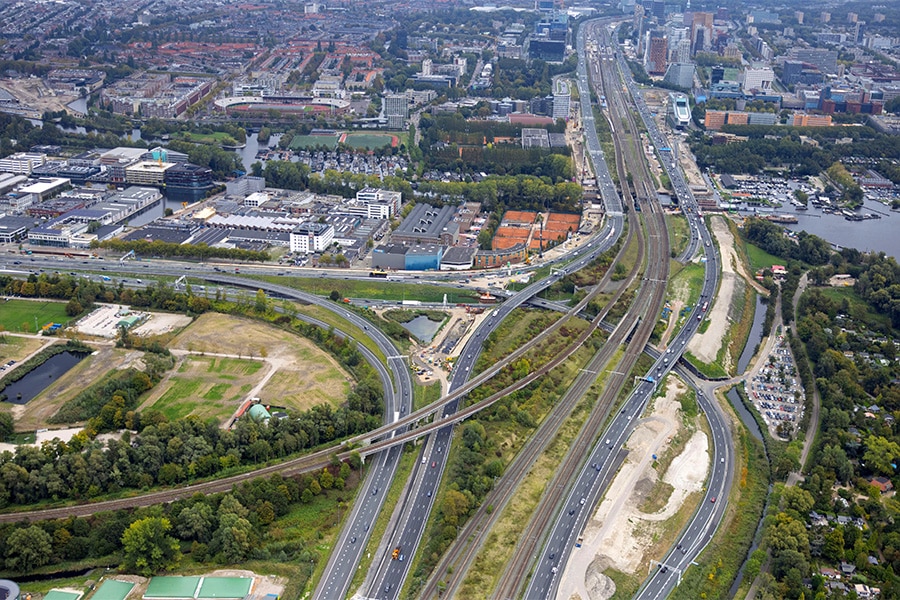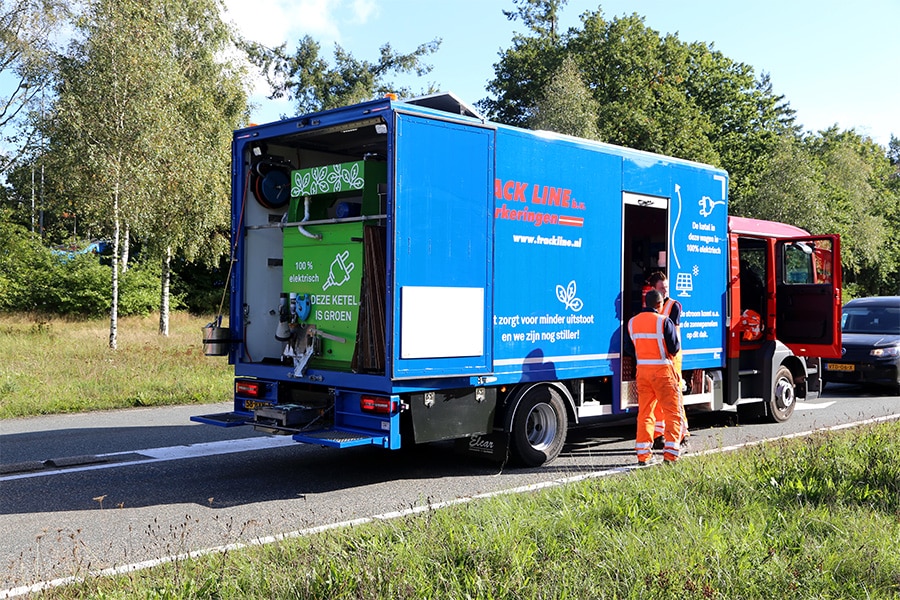
Province of Utrecht reduces emissions around road markings application
Sometimes sustainable ambitions and innovative strength come together in a beautiful way. Take the Province of Utrecht, which last year indicated that it would like to take new steps forward on the sustainability front with regard to road works in the province. Especially when it comes to reducing CO2 emissions. Track Line, which operates from Leerdam, saw an opportunity to contribute to this. It did so by translating the province's wish into the development of a globally unique innovation: an electric boiler that makes the application of road markings within the province's borders much more environmentally friendly. The invention fully deserves to be used on a wider scale. Nationally and internationally.
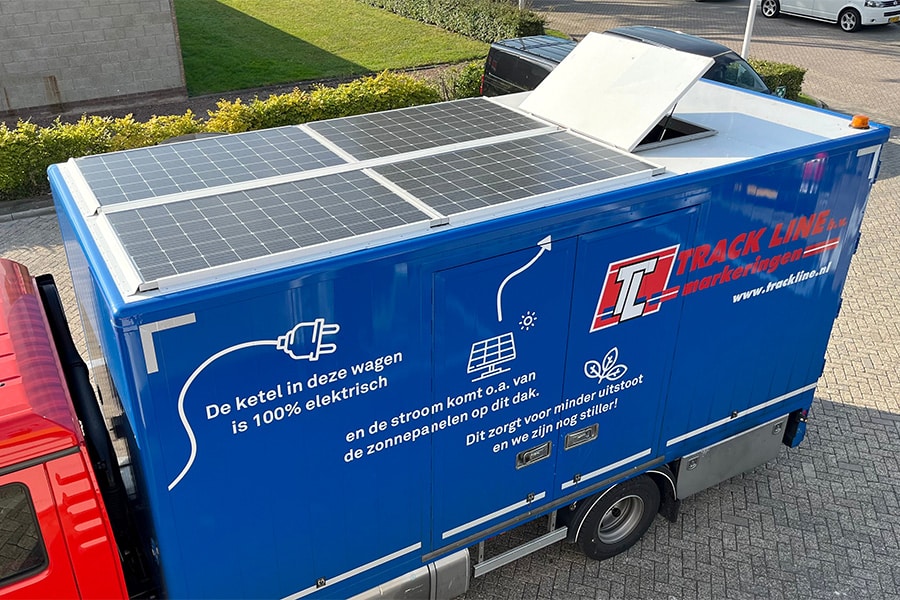
The electric boiler developed by Track Line within its own company walls makes everything different. Cleaner and quieter especially. "The material used for road markings is usually thermoplastic," explains Jan-Reint Vink, business manager at Track Line. "This needs to be heated to over 180 degrees Celsius before use. Previously, this was always done using gas or diesel-fired burners." As of October 2023, that's all history. From now on, Track Line will use an all-electric boiler. And that delivers the necessary benefits. First of all, emissions are saved compared to a boiler fired with fossil fuels. Furthermore, the required electricity is partly generated by solar panels on the roof of the truck. And what is also nice: the application of the markings is a lot more silent than before. "On October 17, 2023, we had the premiere," Jan-Reint looks back with appropriate pride. "That's when the boiler was used for the first time when applying road markings on the N238 in Huis ter Heide."
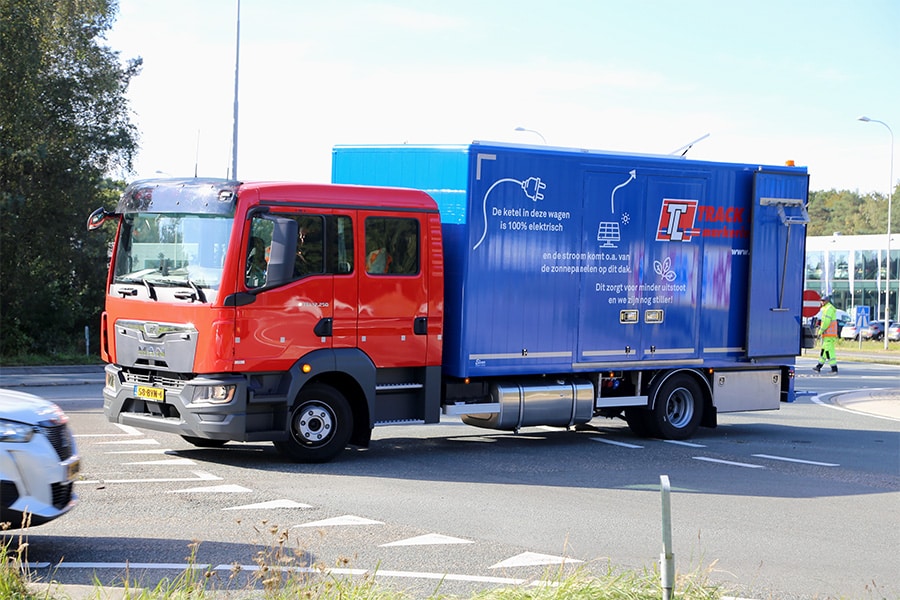
Own development
At Track Line, they are always working on innovation. A response to the province's plans to focus on more sustainability in tenders was therefore not long in coming. "The province's sustainability principle gave us the idea of electrically heating the material we use for our road markings," continues Jan-Reint. "In doing so, however, we presented ourselves with a major challenge. Because buying such a boiler was impossible. Simply because it didn't exist. Although there are boilers that can be partly electrically heated, you are still dependent on gas or diesel as primary fuel. That's why we finally decided to develop an all-electric boiler ourselves."
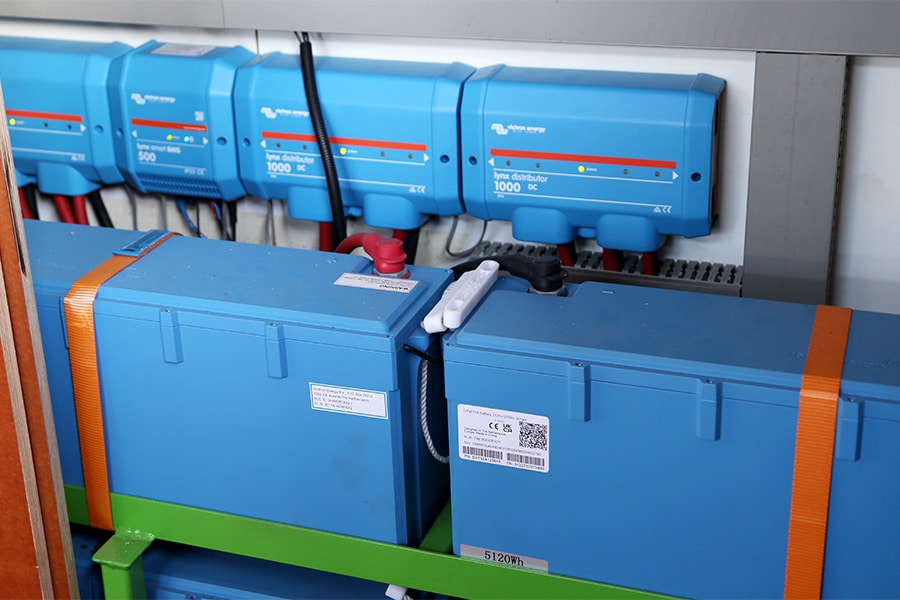
Collaboration
It was an intensive, exciting and complex process. Because although Track Line understands road markings, the small SME is by no means a boiler builder. The presence of mechanics employed by Track Line to maintain the company's machinery offered a solution. "They were fully prepared to think along and collaborate on the development of the boiler. So a lot of credit goes to them," said Jan-Reint. "All that took about six months. Then we had a working product. But that wasn't all. The boiler also had to be fitted into our truck. In addition, solar panels had to be installed on the roof and the truck had to be equipped with very heavy batteries for energy storage. We received perfect help from the truck body supplier. In the end, we managed to get the job done together."
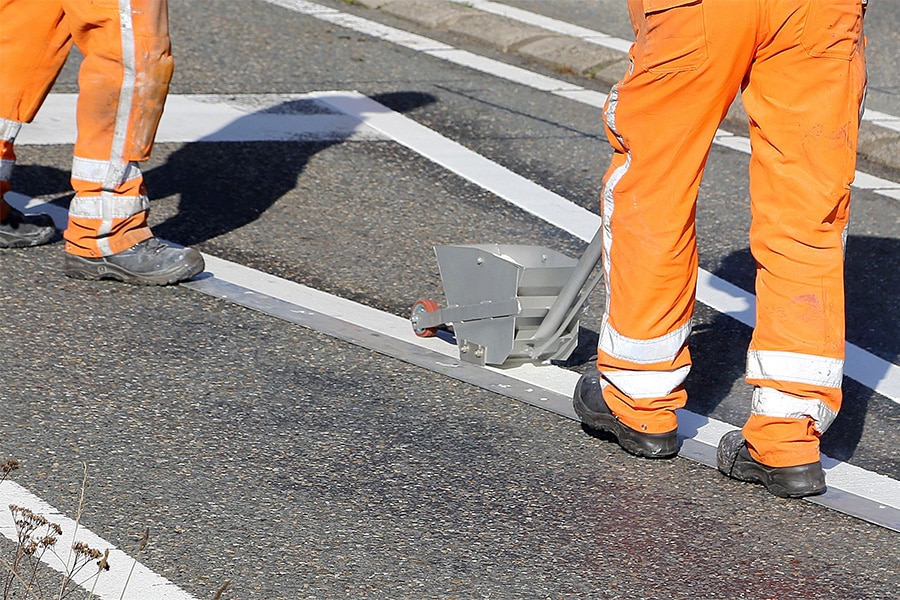
Continued
Meanwhile, Track Line deploys the e-fueled truck not only for the province of Utrecht, but also for other customers. Throughout the country. The boiler is pre-heated overnight via the power grid. When the Track Line road markers go on the road the next day, they switch to the battery in the car. This keeps the boiler at temperature during the work, along with about four solar panels mounted on the roof. "These currently already provide about 10 to 15 percent of the total energy needed," Jan-Reint explains. "In the future that may become more. To that end, we are investigating the possibility of moving the vent hatch. That will provide space for two more solar panels." Asked about follow-up plans, Jan-Reint finally has some good news. "We will also gradually equip our other trucks with an electrically heated boiler. We remain committed to such an environmentally friendly work process."
Experienced marking specialist
Since 2001, Track Line has specialized in the application of markings and coatings with a wide variety of materials. In addition, the environmentally conscious company performs visibility measurements of road markings and manufactures molds and template designs. With all that, Track Line serves municipalities, sports and gaming associations, airports, race tracks, companies and factories on a custom basis.

